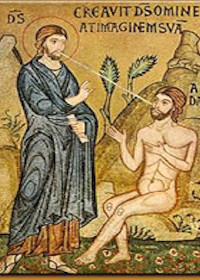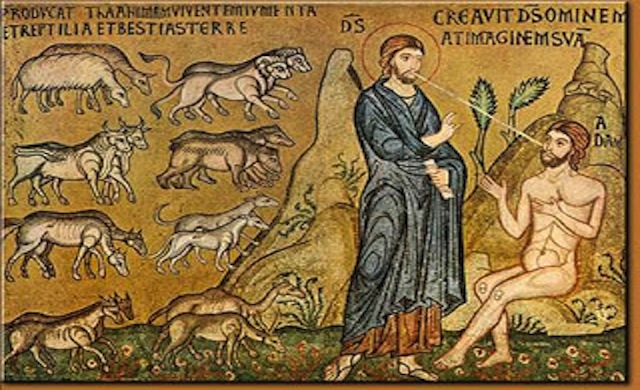Before man sinned, he didn’t have dark basements and repressed experiences hidden deep within him.
Roman Catholics, and even more so Protestants, hold that man was created by God from the very outset as a being existing in layers, i.e., having the conscious in the topmost layer, the subconscious lower, and lower still the unconscious. It is, however, completely impossible for it to be this way, and the Orthodox Church does not accept it.
Just as God is simple, likewise did he create man. Before man sinned, he didn’t have dark basements and repressed experiences hidden deep within him. His entire existence was, before God and his own consciousness, naked and open to God’s eyes (Heb. 4, 13). Everything clean and clear. There existed nothing in a subconscious or unconscious state. This state –i.e., where man has all of these layers and is confused and not able to find an outcome –this was created by sin.
We see the saints, those who enter into the spiritual struggle, always believing in the help of God, always having the grace of God, and without ever backing off. And why? Exactly because they believe that: “Man is able to become holy.” We see them working, struggling, and tirelessly trying –two years, five years … ten, thirty and sometimes fifty years. And then the blessed hour comes. The hour in which the saint –that ascetic over there, that man of God, he who takes things entirely differently from the way we clever people take things– the hour comes in which the whole man is conscious before God, i.e., his whole soul is conscious. There is no subconscious, no unconscious, nor dark basements. There are no repulsive experiences, no uncontrollable situations, his subconscious and unconscious having no autonomy.
(If one reads the neptic fathers, he’ll find much within their works which relate to these themes –themes often spoken of today by psychologists.)
We can in no circumstance say that the saint tells us some good things, but that deeper down he has other states that he doesn’t control. No. It is unthinkable for us to accept that a saint doesn’t control himself, and to believe that at a certain point something will leap out of him –out of his subconscious or his unconscious– and will then betray him. Let’s say that while he wants to act rightly, there comes a certain moment that some evil, some uncontrollable hatred, may come out of him. It isn’t like that. The whole saint belongs to God. And because of this, whatever the saint says is holy, whatever he does is holy, the way he conducts himself, his actions are holy. His entire life is holy. To the holy man the grace of God reaches great depths, proceeding to the conscious, to the subconscious, and even to the unconscious. This means that man, before the fall, had only a conscious. And, unlike what the Roman Catholics think, he had neither a subconscious nor an unconscious.
Holy Hesychasterion “The Nativity of Theotokos” Publications.
Archimandrite Symeon Kragiopoulos


